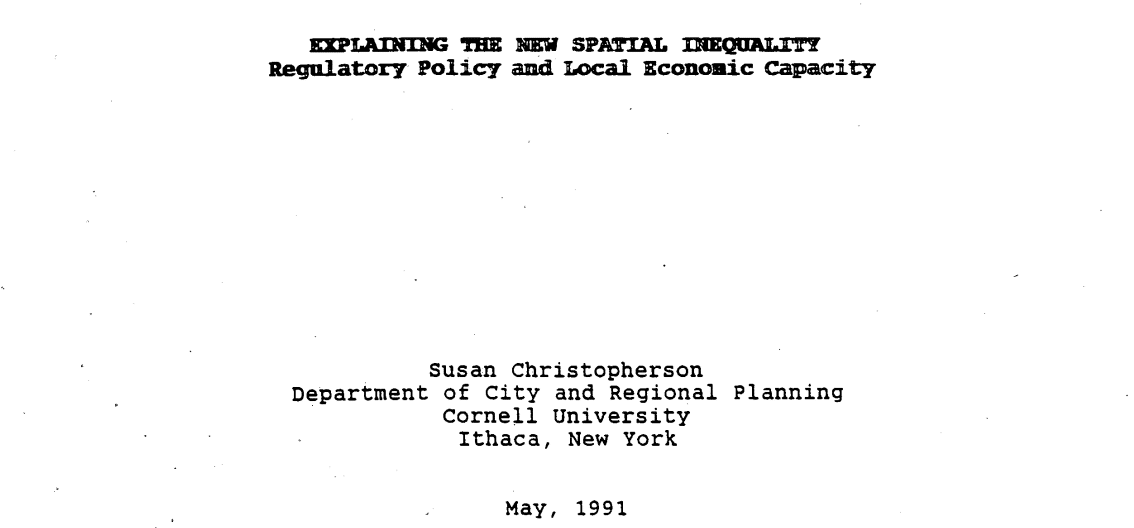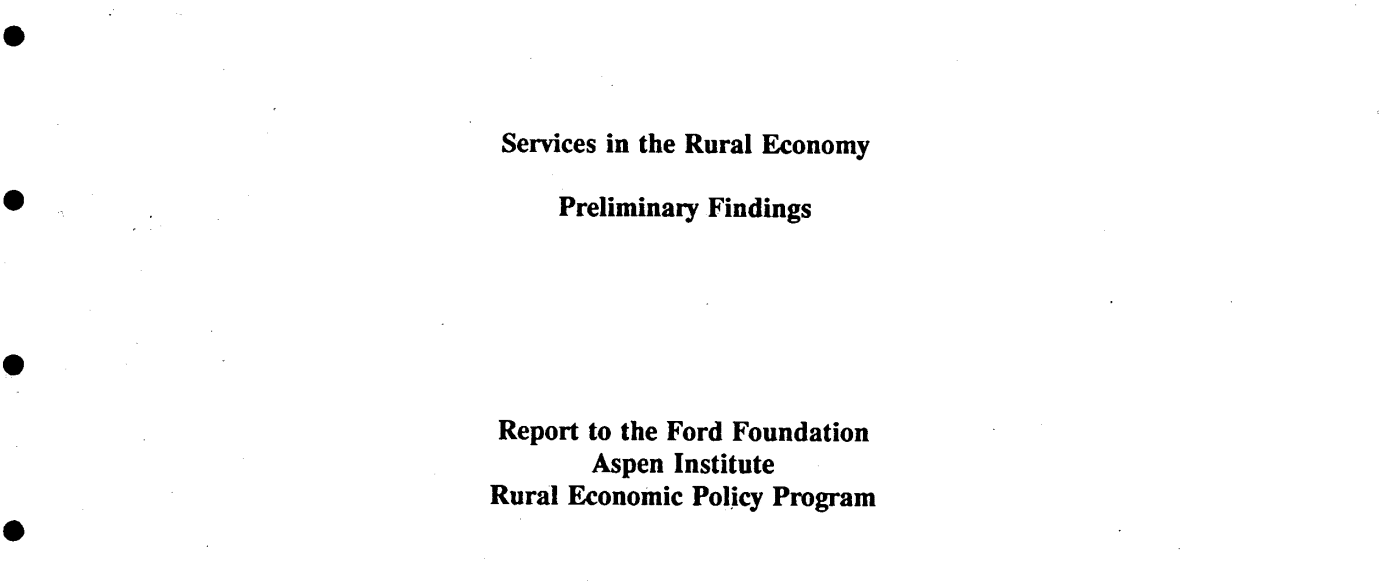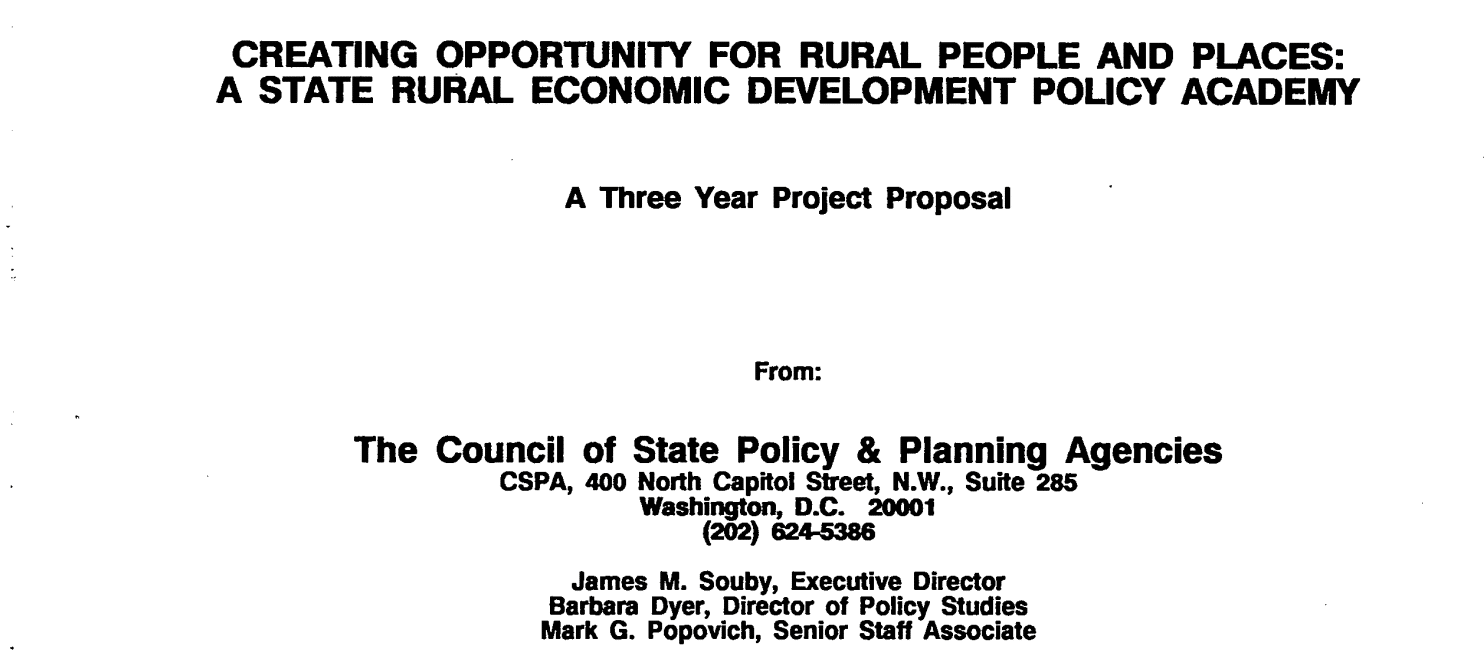Economic Development

Spatial Inequality: Regulatory Policy & Capacity
Paper argues that while increasing spatial inequality can be explained with reference to the internationalization of the U.S. economy and firm competitiveness, changing market conditions are not the only factors re-shaping the space economy.

The Slowdown in Nonmetropolitan Development: The Impact of Economic Forces and the Affect on the Distribution of Wages
Paper explores the divergence in nonmetropolitan and metropolitan development over the past decade by addressing three questions.

Technology Innovation & Rural Development: Lessons from Italy and Denmark
Report examines development policies in less urbanized but industrialized and industrializing regions of two European countries to find out more about the successes and failures of science and technology in promoting rural development.

Services in the Rural Economy: Preliminary Findings
Report addresses gradual decline in manufacturing industry in U.S. and its role in rural economies.

State Telecommunications Policy: Working Notes from the Aspen Institute Conference of September 26-28, 1990
Report summarizes the highlights of the Aspen Institute's conference, "State Telecommunications Policy," on September 26-28, 1990 at the River House Conference Center.

Hand in Hand: Community and Economic Development in Tupelo
This report, "Hand in Hand: Community and Economic Development in Tupelo," by Vaughn Grisham and Rob Gurwitt, is a case study published by the Aspen Institute Community Strategies Group.

Developing Entrepreneurial Economies in Rural Regions: Lessons from Kentucky and Appalachia
This Aspen Institute report, "Developing Entrepreneurial Economies in Rural Regions: Lessons from Kentucky and Appalachia," by Rob Gurwitt, summarizes a June 1996 workshop in Kentucky that explored how rural regions can cultivate entrepreneurial economies. The report highlights the challenges faced by states like Kentucky, which have historically relied on low-skill industries and external ownership, leading to a lack of risk capital, sophisticated business services, and an entrepreneurial culture.

Rural Workforce 2000: Skill Upgrading and the Rural Economy, 1970-2000
This file, titled "RURAL WORKFORCE 2000: SKILL UPGRADING AND THE RURAL ECONOMY, 1970-2000," by Ruy A. Teixeira and Lawrence Mishel, challenges the "supply-push" theory of rural development, which posits that increasing education in rural areas will lead to economic growth due to an increasing demand for skilled labor.

The Impact of Deregulation on Rural Commercial Credit Availability in Four New England States: Empirical Evidence and Policy Implications
This report, "The Impact of Deregulation on Rural Commercial Credit Availability in Four New England States: Empirical Evidence and Policy Implications" by Deborah M. Markley, published in May 1990, investigates how financial deregulation affected the availability of commercial credit in rural areas of Maine, Massachusetts, New Hampshire, and Vermont.

Rural Workforce 2000: Skill Upgrading
Report seeks to address the importance of upgrading the skill levels of rural works to match the skill levels of available jobs.

Rural Policy Issues: Papers from Aberdeenshire
Paper provides case study analyses of rural policy issues in both Western Europe and North America

Creating Opportunity for Rural People and Places: A State Rural Economic Development Policy Academy
Report is a policy proposal for the CSPA Policy Academy, designed to deliver intensive assistance to states in rural policy development.
